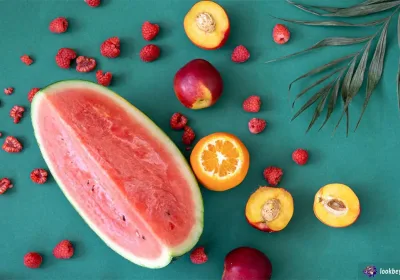How to Prevent Winter Hair Breakage: A Trichologist’s Guide to Healthy Locks

Winter is here, and with it comes a host of hair challenges. One of the most common problems during the colder months is hair breakage. Dry air, fluctuating temperatures, and increased use of heat styling tools all contribute to weakened hair that’s prone to snapping. But fear not! As a trichologist (a specialist in hair and scalp health), I’m here to help you understand why winter wreaks havoc on your hair and, more importantly, how to prevent winter hair breakage.
Why Winter Causes Hair Breakage
Winter presents several factors that can contribute to hair damage, and understanding these will help you take the necessary steps to protect your locks:
- Dry Air: Cold winter air has low humidity, which strips moisture from your hair. This leaves strands dry, brittle, and prone to breakage.
- Indoor Heating: To combat the chill, we turn up the heat indoors, which further dries out the air and your hair. Prolonged exposure to heated indoor environments can dehydrate the scalp and weaken hair strands.
- Static Electricity: The lack of moisture in the air and the friction of clothing can cause static buildup in your hair. This leads to flyaways and breakage, as the strands become more fragile.
- Harsh Winter Conditions Wind, snow, and rain can cause tangling and physical damage to the hair shaft. These elements can make it harder to maintain smooth, healthy hair, especially if your hair is already dry.
- Heat Styling: Many of us reach for blow dryers, straighteners, and curling irons more frequently in the winter to combat flat hair or to add volume against the chill. Excessive heat styling can strip moisture from the hair and cause breakage over time.
How to Prevent Winter Hair Breakage: A Trichologist’s Guide
1. Deep Condition Regularly
Moisture is the key to healthy hair, and it’s even more important in winter when your hair is more susceptible to dehydration. A deep conditioning treatment at least once a week can provide your hair with the hydration it needs to stay strong.
Trichologist Tip: Look for conditioners that contain ingredients like shea butter, argan oil, or glycerin, which are excellent for locking in moisture. Apply the conditioner generously to the mid-lengths and ends, where hair tends to be drier.
2. Use a Humidifier
As you crank up the indoor heating, the dry air can wreak havoc on your hair. A humidifier adds moisture back into the air, preventing your hair from becoming excessively dry and brittle.
Trichologist Tip: Keep the humidifier near your sleeping area to maintain moisture levels while you sleep. This will help prevent winter scalp and hair dryness, reducing the risk of breakage, scalp irritation and other damage.
3. Avoid Over-Shampooing Your Hair
Washing your hair too often strips it of its natural oils, leaving it more vulnerable to damage. During the winter months, try to wash your hair no more than two to three times a week.
Trichologist Tip: If you need to refresh your hair in between washes, use a dry shampoo to absorb excess oil and add volume without disrupting your hair’s natural moisture balance.
4. Protect Your Hair from the Elements
When you head outdoors, make sure your hair is protected from wind, snow, and rain. These elements can cause tangling, breakage, and even lead to color fading for dyed hair.
Trichologist Tip: Invest in a protective winter hat or scarf that covers your hair without causing friction. Opt for silk or satin-lined accessories, as they are gentler on your strands and reduce static.
5. Limit Heat Styling
While it’s tempting to style your hair with hot tools during the winter, excessive heat can strip away the moisture from your hair, making it more prone to breakage.
Trichologist Tip: Use a heat protectant spray before styling to create a barrier between your hair and the heat. Limit the use of heat tools to once or twice a week, and try air-drying your hair whenever possible.
6. Use a Leave-In Conditioner
Leave-in conditioners can provide a protective layer around your hair that locks in moisture and shields your strands from the elements. They are especially helpful during the winter when your hair is exposed to drying indoor heat and frigid outdoor air.
Trichologist Tip: Opt for a leave-in conditioner that contains nourishing oils like jojoba or coconut oil to keep your hair hydrated and less prone to breakage.
7. Maintain a Healthy Diet
Healthy hair starts from within. A well-balanced diet rich in vitamins and minerals is essential to support strong, shiny hair.
Trichologist Tip: Include foods high in vitamin C (citrus fruits, bell peppers), vitamin E (almonds, sunflower seeds), and omega-3 fatty acids (salmon, flaxseeds) to nourish your hair from the inside out. Hydrate regularly by drinking plenty of water to keep your scalp and hair hydrated.
Final Thoughts
Winter hair breakage doesn’t have to be inevitable. By adopting these expert tips from a trichologist Marcey Grant, you can keep your hair healthy and strong throughout the colder months. The key to preventing winter hair breakage lies in moisture retention, protection from the elements, and minimizing damage from heat and friction. With a little care and attention, your locks will stay looking fabulous all winter long.
Health & Wellness,
Marcey, Certified Health Coach & Trichologist
DISCLAIMER: The content in this blog is for informational purposes only. And not intended to diagnose, treat, cure, or prevent any medical condition or replace your healthcare professional’s advice and guidance. If you suspect a medical condition, please seek medical attention immediately.
You may also enjoy reading: Whole Food Detox Recipes to Rejuvenate Your Skin and Hair for the New Year





